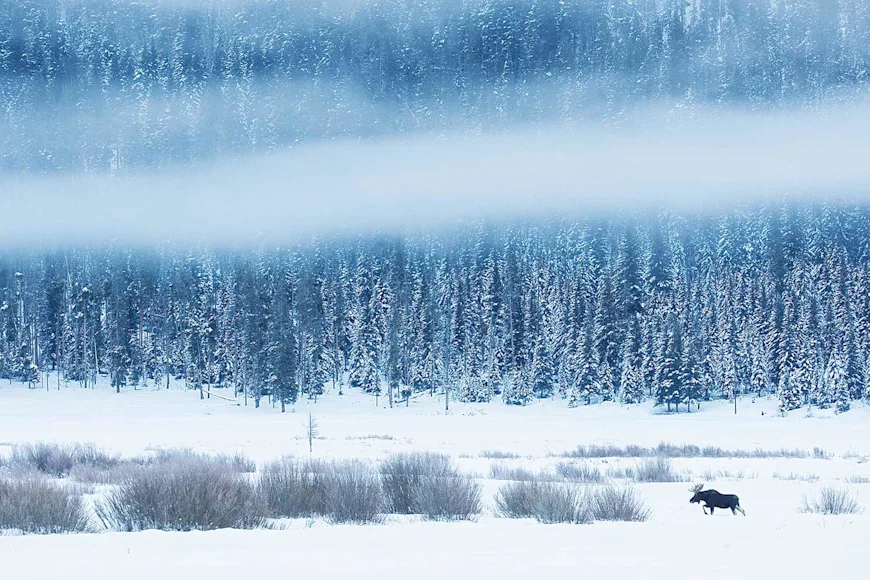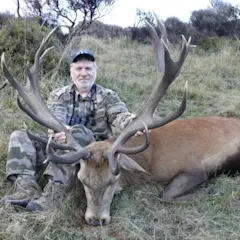_We may earn revenue from the products available on this page and participate in affiliate programs. Learn more ›
_
Editor’s Note: To celebrate David E. Petzal’s
, we’ve asked staffers and contributors to select and share their favorite story of Petzal’s (no easy task—there are a lot of good ones). Today’s selection, “When Is It Time to Stop Pulling the Trigger?” (December/January 2019) was made by Bill Heavey.
David E. Petzal has bona fides like nobody else working right now, but the crusty curmudgeon he often plays is just the surface chatter. Beneath that, there’s an even crustier guy, one who does not suffer fools, as more and more of humanity fits into that category. Beneath that, things get interesting. A former editor of this publication once described his writing to me this way. “He writes like he talks, but in complete paragraphs. I can tell him I need 2,500 words on the ethics of killing game, and it’ll be on my desk by the end of the day, needing little or no editing.”
One of Dave’s many secrets is what you find in nearly all hunters if you dig deep enough and know where to look: a heart made tender by deep experience in the field and with fellow hunters. Read “When Is It Time to Stop Pulling the Trigger,” below, which is both a thoughtful response to a reader question and a synopsis of his own evolution as a hunter. Hunting has provided him with excitement, adventure, and a test of skill. But he recognizes that for his quarry, the adventure means death. He ends his musings—as he often does—with a short but irreducible sizing up of the human dilemma. “No one knows how much time they have. And because life is uncertain, it becomes more valuable, and because it becomes more valuable to you, you may become reluctant to extinguish it in other creatures.” I challenge anybody to be more poignant and succinct than that. —B.H.

Donald M. Jones
Not long ago, I received this email from a reader:
I’ve been a serious hunter for all of my 61 years. I’ve chased virtually every game species in the Western U.S. and Alaska.
But I have a problem. Over the past couple of years, I’ve had trouble pulling the trigger. Mechanically I’m fine. Mentally, not so much. I just don’t enjoy the killing part anymore. What the hell is wrong with me?
My answer: Probably the same thing that’s wrong with me. Having hunted for 60 years, I now do very little of it, probably for the same reasons as you.
As hunters get older, and presumably wiser, a number of things become clear. The first of these was stated by a Greek philosopher who lived between 335 and 245 BCE. His name was Bion of Borysthenes, and he wrote: “Boys throw stones at frogs in fun, but the frogs do not die in fun, but in earnest.” To us, hunting may be excitement, adventure, a test of skill and character, the fulfillment of a compulsion that is hard-wired into our brains, and a source of food that you can’t get any other way.
And so it is all that. But for the animal involved, it’s the end. It’s what they’ve struggled against every day of their short, hard lives. Watch the hooves of a dying creature frantically scrabbling to escape, trying to obey signals from its brain that its body can no longer execute. The lesson will hit home.
On television, there’s an AARP ad featuring an actress in her 50s who proclaims, “I’m in my 60s and have a nice long life ahead of me.” Maybe. Maybe she’ll live to 92. Maybe she’ll die this very afternoon courtesy of a distracted driver. Maybe six months from now, her doctor will tell her to get her affairs in order because her time here is up.
This is the next thing you learn: No one knows how much time they have. And because life is uncertain, it becomes more valuable, and because it becomes more valuable to you, you may become reluctant to extinguish it in other creatures.
Here’s a quote from Killers in Africa, by PH Alexander Lake
. It’s about an American named Nicobar Jones, who for decades was one of Africa’s most expert hunters. I read the book in 1952, when it was published, and never forgot it:
“He saw beauty everywhere. I’ve seen him stand watching a flowing arc of leaping springbok, muttering, ‘Purty, purty,’ until the last of the herd disappeared, then plod back to camp, meatless and hungry. Everything in Africa was ‘purty’ to Jones—the sky, the veld, the forest, morning and night, noonday and sunset, rain and wind, a loping lion, a galloping giraffe—everything.”
Jones was not hunting for adventure or for character development, but because he was hungry. And still he could not pull the trigger.
What the hell is wrong with you? Not a thing. It’s fine to pull the trigger for all the reasons mentioned above, just as it’s fine not to want to do it anymore.






